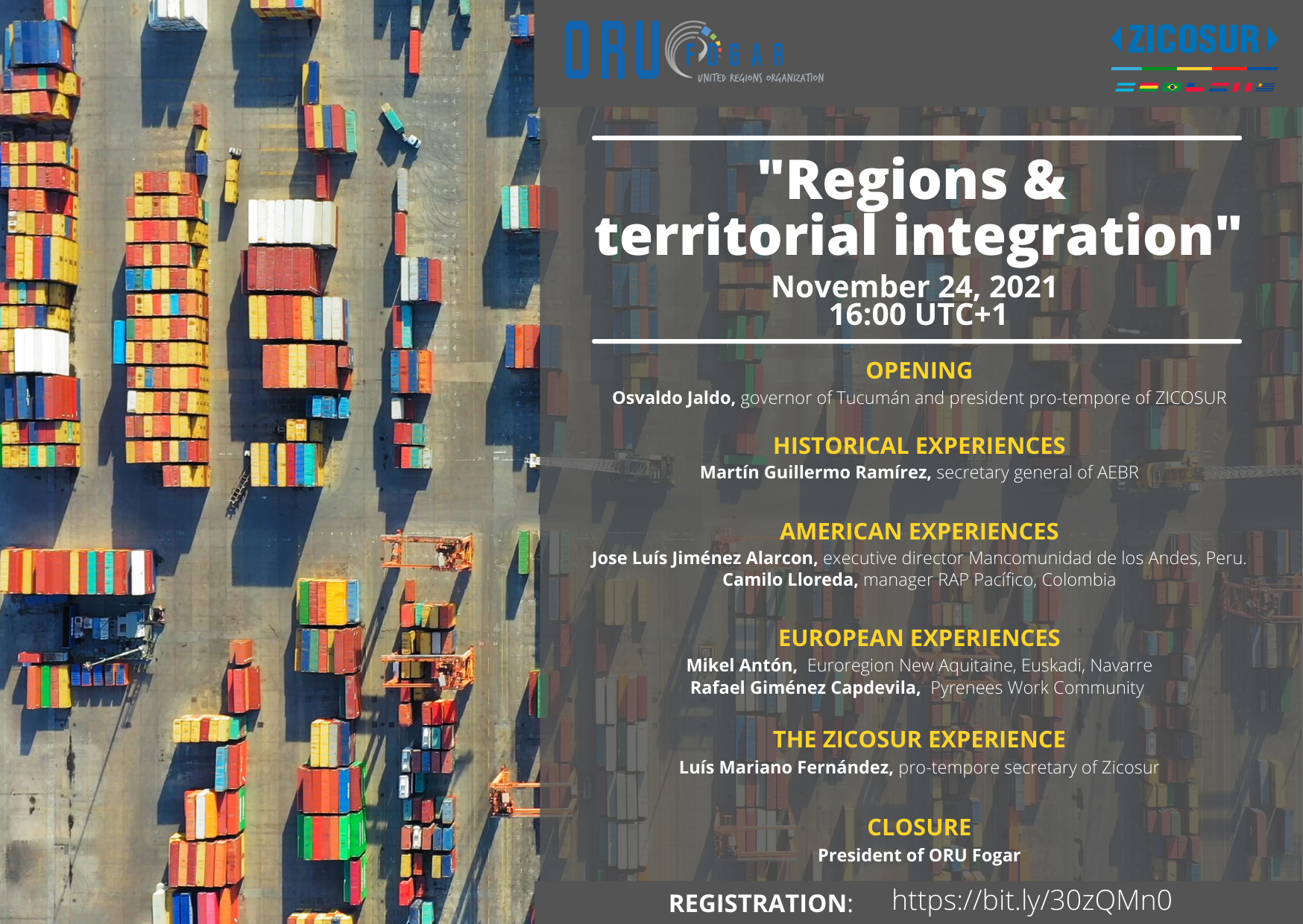A seminar to talk about integration work between regions

While the processes of decentralization and the reinforcement of regional powers are being strengthened, the need for cooperation between regions becomes evident, in a horizontal coordination that often must go beyond borders. The interdependence between regions is increasingly evident and this requires continuous networking and integration processes between regions. The Zicosur, the Integration Zone in West-Central South America, is an example of this work of territorial integration of the intermediate governments of Argentina, Chile, Bolivia, Brazil, Uruguay. and Paraguay. Thus, as virtual host of the Annual Assembly of ORU Fogar, Zicosur wished to organize a seminar entitled "Regions and territorial integration" which will be held on Wednesday 24 November.
What will the seminar be about? In many situations, administrative borders, the different political administrative procedures, and cultures between neighbouring territories act as a brake on their development possibilities. Faced with this situation, close cooperation between the regions increases the capacity to respond more effectively to major challenges. And it is that the regions, with a local knowledge of the needs, in interregional cooperation can unleash many of the potentialities of their territories. A recent study on the economic impact of border obstacles on GDP and employment levels in internal land border regions suggests that these regions could on average be potentially 8% richer if all current barriers were removed and a common language was used by all.
However, territorial integration processes are not only a development factor for the regions that lead them. They can also be an important asset in promoting global development. Territorial cooperation can create an important critical mass for development, reducing economic, social, and ecological fragmentation, creating mutual trust and social capital. Thus, the integrated territories will be able to make better use of potentials such as their valuable natural, landscape and cultural heritage, the networks of towns and cities and the labour markets and other spaces of coexistence divided by regional or national borders.
Nevertheless, this regional integration, whatever it is cross-border or not, requires adequate coordination and management instances. Fortunately, within ORU Fogar, we count with members with great experience in this regard, who can illustrate us with different examples.
This seminar will address the topic by showing five different and successful regional integration projects. Three in Latin America and two in Europe. From America, we will be shown one of the integration experiences of Colombian departments in Administration and Planning Regions, specifically the RAP Pacífico. There will also be members of the Mancomunidad of the Andes, the most advanced commonwealth of regions in Peru. Zicosur, the hosts of the Assembly will share with the assistants some integration experiences that share intermediate governments from all over the South American cone. Europe will be present with the Work Community of the Pyrenees, which coordinates policies between Spanish autonomous communities, French regions, and an Andorran body, on either side of the Pyrenees; and with one of the Euroregions with the most history and management successes, such as the Euroregion Nueva Aquitania Euskadi Navarra. The seminar is going to start, with an inaugural lecture by the Secretary General of the Association of European Border Regions, Martin Guillermo Ramírez. AEBR, who has worked on cross-border projects in Europe, but also in America for a long time. AEBR celebrates 50 years of its foundation in 2021.








































































